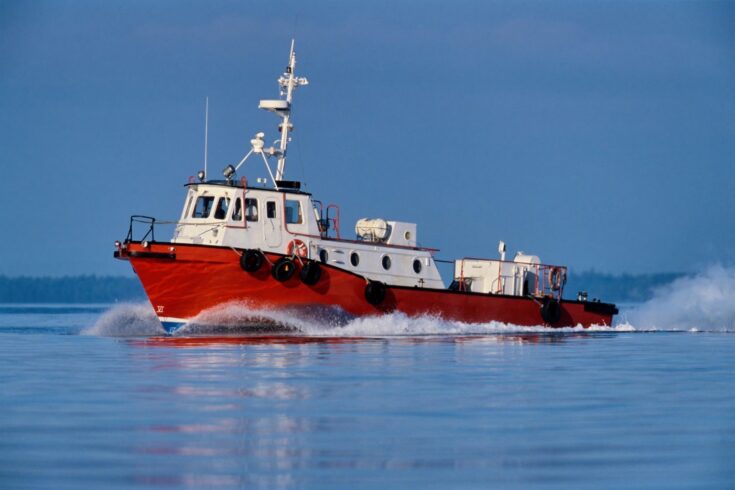Auriga Energy, leaders in sustainable hydrogen fuel cell systems, are heading up a new project to define a high-efficiency clean power system for safe installation and operation in offshore workboats.
Developments in battery technology have shown plenty of promise in the maritime sector. However, their viability for vessels comes with questions around their impact on load space, power generation, and long-term use in a marine setting.
There is therefore an opportunity to assess and demonstrate the potential for the use of hydrogen fuel cells as a more realistic and comparable alternative to full diesel engines. With research and development needed in this space, new projects are key to bringing this concept towards the market.
Safe installation and operation of a fuel cell system and hybrid powertrain in offshore CTV
Alongside Auriga Energy, who have already successfully deployed a hydrogen-fuelled ferry in Bristol, this project brings together the expertise of:
- electric drive and energy storage specialists Deregallera
- the Compound Semiconductor Applications Catapult
- fire science and engineering experts Efectis
The project will focus on the development and initial tests of a high-energy fuel cell power system that combines a typical vessel’s existing diesel engine with a range of innovative hydrogen-run technology to provide cleaner and consistent power.
Focused on new vessels designed to fit the system, the project is looking at the potential for supporting operations in the offshore wind industry in making its green energy truly green.
The project scope
Following on from work completed in a previous clean maritime demonstration competition round two (CMDC2) funded project, this 12-month feasibility study between April 2024 and March 2025 will work to tackle the key challenges of safe installation and operation of the hydrogen system onboard a crew transfer vessel (CTV).
Working to deliver innovation that fits in compliance with the guidelines of maritime certifying authorities, the project will define and bench-test elements of a prototype for a modular marinised fuel cell system delivering up to 2.4 million watts power from:
- a novel custom high-power direct current to direct current converter
- a high efficiency integrated multi-inverter
- a parallel motor direct drive powertrain
The work will focus heavily on safety of installation and operation on board these vessels, looking at areas such as control system shutdowns, heat loss, gas dispersal and power output.
Completing analysis of carbon saving estimates and the wider environmental benefits of replacing reliance on diesel engines in new CTVs at individual and fleet level will also form part of the project’s outputs.
Aims and ambitions
The fundamental aim of the project is to demonstrate the ability of the solution, and its potential and opportunity for scaling in the future. This will be achieved by showcasing its ability to match the power output of a traditional diesel engine, while also addressing storage capacity needs to complete each journey type.
The project has further ambitions after the completion of this feasibility study. The partners will pursue further funding to take the concept to the next pre-deployment stage, as well as looking for new collaboration opportunities within the sector. Other aims for this study include:
- working with potential users to continue testing its installation and real-world application
- developing greater hydrogen storage potential
Considering the focus on the maritime sector, Jas Singh, Managing Director at Auriga Energy, commented:
Despite marine diesel being crude and dirty as a fuel, shipping has often been ignored when it comes to tackling net zero aims, with a greater focus on areas like cars, HGVs and home insulation instead. With a more international mindset towards the shipping sector, it is perhaps more out of sight for domestic climate aims.
This project does, however, give a real opportunity to deliver tangible emissions reductions in a way that is free from oil. We now have the means to produce the technology to make this happen, and we will continue to work to achieve these aims and bring the solution closer to uptake in the industry.
About the funding
This project is part of the clean maritime demonstration competition round four (CMDC4), funded by the UK Department for Transport (DfT) and delivered by Innovate UK.
CMDC4 is part of DfT’s UK Shipping Office for Reducing Emissions programme, a £206 million initiative focused on developing the technology necessary to decarbonise the UK domestic maritime sector.
The programme will include a multitude of technologies including hydrogen, electric and ammonia. This funding will place the UK among the leading nations in the development of new and innovative vessels and port infrastructure, supporting its rich maritime industry and coastal communities.
Top image: Credit: Don White, E+ via Getty Images

